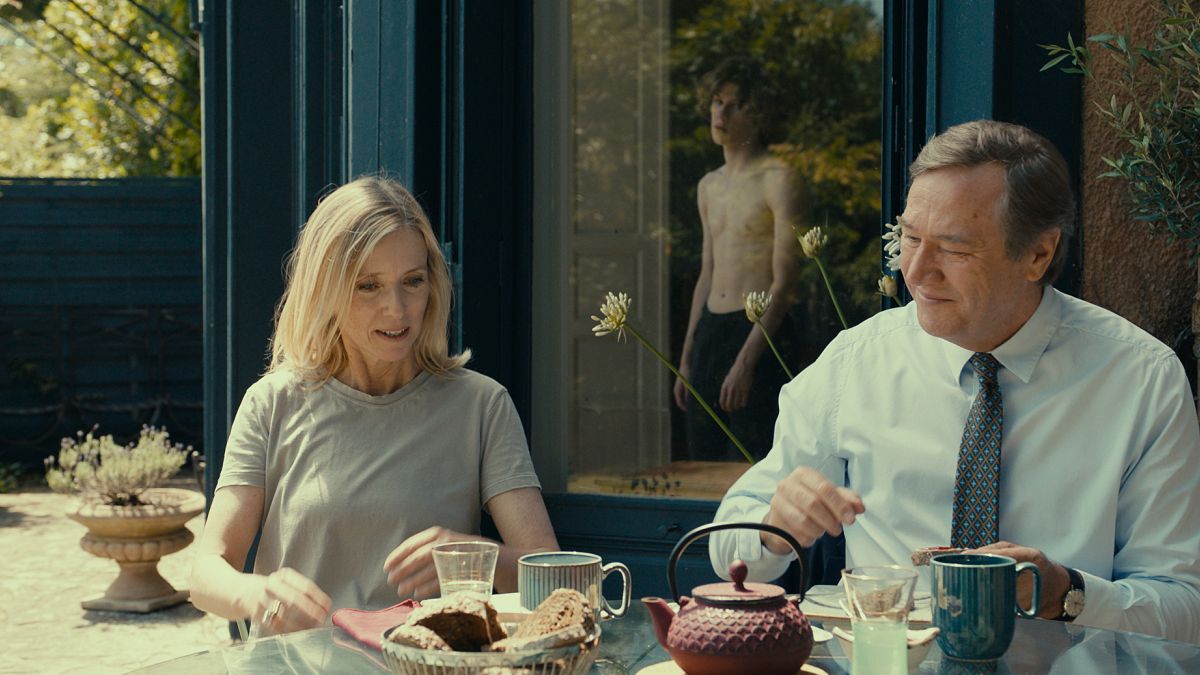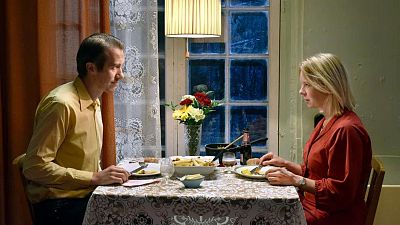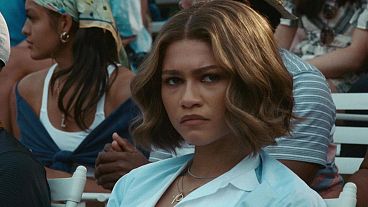Portrait of a Lady with a Vertigo Theory
For her first film in 10 years, taboo-breaking French writer-director Catherine Breillat shows she’s more than capable of shattering a few more boundaries at the age of 74.
L’Été Dernier (Last Summer) is a remake of the 2019 Danish thriller Queen of Hearts and is a compelling and more subtly shocking offering than some of Breillat’s more immediately impactful past works - like Romance or Fat Girl.
It centres on Anne (Léa Drucker), a successful lawyer who represents young people who have been sexually abused or exploited by adults. She lives with her wealthy husband Pierre (Olivier Rabourdin) and their young adopted twin daughters in an idyllic house on the outskirts of Paris.
When Théo (Samuel Kircher), her husband’s son from a first marriage, comes to live with them after being expelled from school, something shifts. The sullen teen (with a fantastic case of subversive mop hair) provokes a forbidden flirtatious tension within the household, which clashes with the conventions of Anne’s daily life and the creeping boredom she senses coming from her husband’s “normopathy”. She embarks on an illicit affair with the troubled 17-year-old and threatens the bourgeois haven she has built for herself.
Gone is Queen of Hearts ’ conventional moralising and penchant for melodrama; Last Summer sees Breillat steer clear not only of the stepmom-stepson erotic subgenre but refuse to outright label either side as paedophile villain or child victim robbed of consent. Nor does she pass judgement, and even gives humour a seat at the table, with certain moments – including an early sex scene between Anne and her husband featuring some, shall we say, interesting pillow talk – subtly paving the way for a more rounded relationship picture by the film’s closing moments.
The filmmaker allows the sex scenes to play out for longer than expected, with unbroken close-ups on faces which pinpoints the impulsive place where rationality gives way to lust. These scenes don’t have the graphic daring of some of Breillat’s past works, but the way her camera lingers reminds us of how she has always sought to challenge the male gaze by showing the realities of female pleasure on screen. In doing so here, she confronts human contradiction and the regrettable choices we make – in this case, the way Anne falls to her “vertigo theory”: not fearing the fall but being filled with the irrepressible temptation to jump just because the metaphorical cliff exists.
Drucker phenomenal throughout, giving her character the complexity she deserves. Anne is portrayed as a woman who succumbs, and by doing so betrays marital trust by ripping away the façade of marriage. She fractures her rigorously-managed professional integrity and the sense of self she has built; by convincingly oscillating between her character’s multitudes, Drucker buttresses the dramatic irony of a woman morphing into the very thing she fights against. Not once is Anne lumped into the paedophile category, a box many filmmakers looking for any easy way out could have ticked. Anne is a steely, calculating yet vulnerable person who cannot help but sabotage – or succumb to who she truly is.
It is through her performance that Last Summer reveals itself as a film about chipping away at le paraître – the semblances of the self – and how we reconcile human paradoxes. Anne’s “craziness” fully blooms with a stunning final shot which hints that while she believes she’s in control and can manipulate those around her by shifting into lawyer mode and lying out of self-preservation – much like many a cheating male counterpart has done in the past – she is seen for who she actually is. More than she realises, she's already fallen from the cliff a while ago and landed in the eyes of those closest to her. The perfectly placed final line and the focus on a wedding band contains more confrontational weight than any explicit sex scene ever could in this circumstance.



